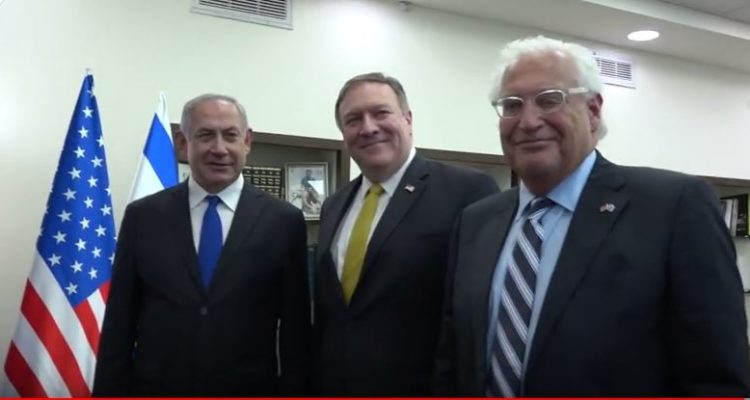US-Israel ties are stronger than ever, Netanyahu said Sunday ahead of his first meeting with new US Secretary of State Mike Pompeo.
By: Andrew Friedman/TPS
At Sunday morning’s weekly cabinet meeting in Jerusalem, Prime Minister Benjamin Netanyahu praised new US Secretary of State Mike Pompeo, a career army officer and former Republican congressman from Kansas, as a “true friend of Israel” and said the visit takes place at a time that relations between Israel and the US are stronger than ever.
The Israeli leader repeated his thanks to US President Donald Trump ahead of next month’s transfer of the US embassy from Tel Aviv to Jerusalem and said that his talks today with Pompeo would focus on regional developments, including Iranian aggression and the Iran nuclear deal, which is up for presidential review at the end of next week.
Netanyahu also noted the significance of Pompeo’s decision to travel to the Middle East immediately upon taking office as a clear sign that the Trump administration will continue to play an active role in the region, particularly in defense of Israel.
As noted above, the visit ushers in a critical month for United States’ policy in the Middle East and for matters critical to Israel: On May 12 – a week from Saturday – Trump must either re-affirm Washington’s commitment to the JCPOA or pull out of the nuclear deal with Iran that Trump has repeatedly called a “disaster.”
Two days later, the American embassy is scheduled to open in Jerusalem to fanfare that is expected to include a who’s-who of Israel’s political echelon as well as a 40-strong delegation of American members of Congress.
Israeli government officials from Netanyahu down have heaped effusive praise on Trump for the move, which represents a sharp reversal of US policy toward the city as well as for an overall policy that is critical of the Palestinian world for having refused for decades to make peace with Israel.
However, the meeting also takes place under a cloud of uncertainty regarding Trump’s plans regarding American involvement in the Syrian Civil War. Prior to becoming president, Trump was a harsh critic of US involvement in a war he said had no American component. During the US presidential race, as a candidate he said that he would be unwilling to “start World War III” in order to put American lives on the line for either side in the conflict.
More recently, Trump told reporters in March that American troops would “be coming out of Syria very soon.”
Israel’s competing needs
On the other hand, Trump has ordered airstrikes on targets allied to the Assad regime twice since taking office, both times in response to chemical weapons attacks by the regime against civilian targets.
Although Netanyahu and Pompeo are certain to face the press with smiles and to present a united relationship when they meet Sunday, the combination of Trump’s on-again-off-again hostility to US involvement in Syria and Trump’s and Pompeo’s animosity to to the Iran nuclear deal potentially sets a stage for a clash over competing Israeli needs. Conventional wisdom says that American involvement in Syria is the only element in that conflict that is preventing Iran from fully entrenching itself in the country and from setting up an unfettered supply channel to the Hezbollah terror group in south Lebanon.
However, should the United States pull out of the nuclear agreement, it could push the Islamic Republic to ratchet up the pace of its nuclear research, creating a possible scenario of a nuclear-capable Iran that also maintains an open, aggressive presence in the vicinity of Israel’s eastern and northern borders.
Add into the mix Russia’s planned delivery of S-300 anti-aircraft missiles to Syrian President Bashar al-Assad, as well as unconfirmed reports that Russia has warned Israel there would be “consequences” were Israel to strike the batteries, and Pompeo’s talks with Netanyahu become infused with a sense of urgency that both men are likely to try to downplay.





